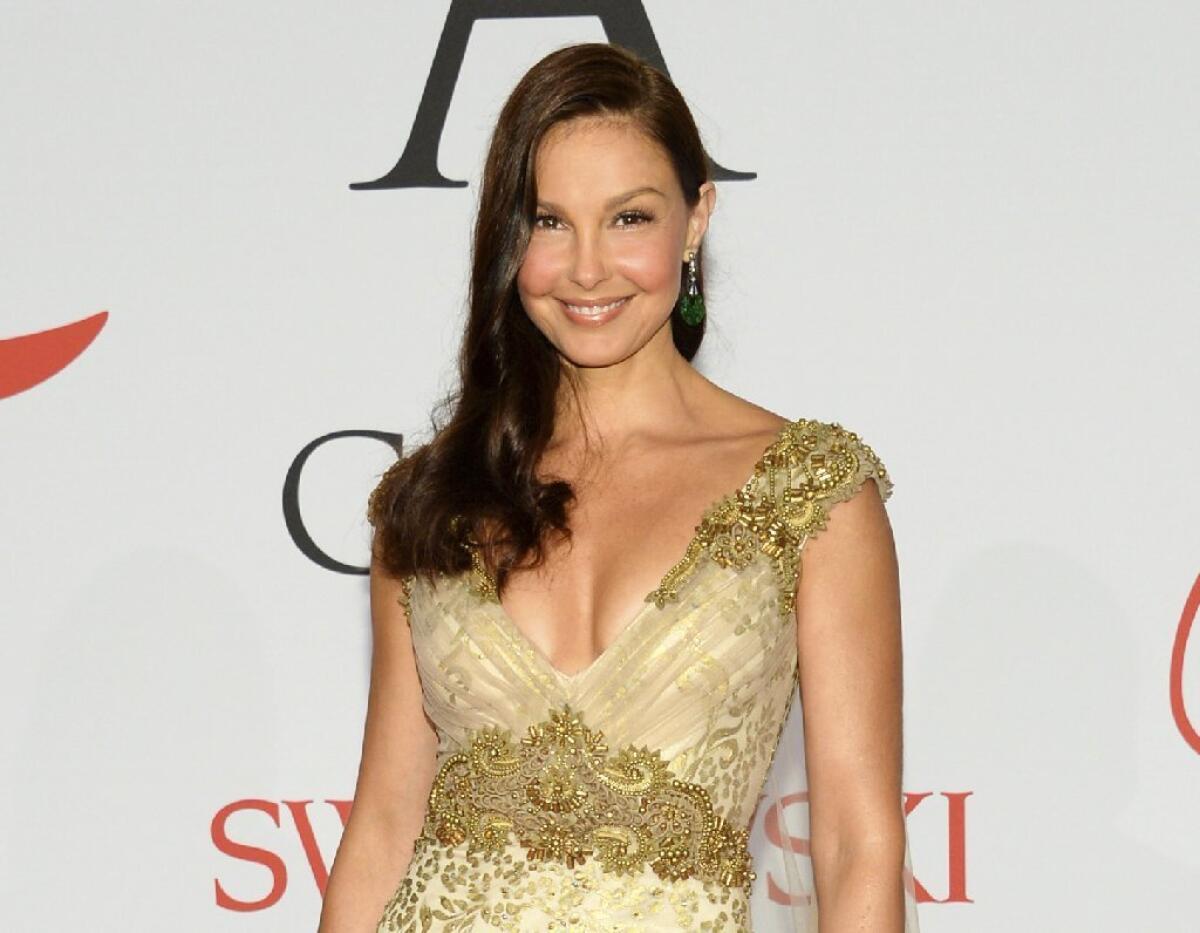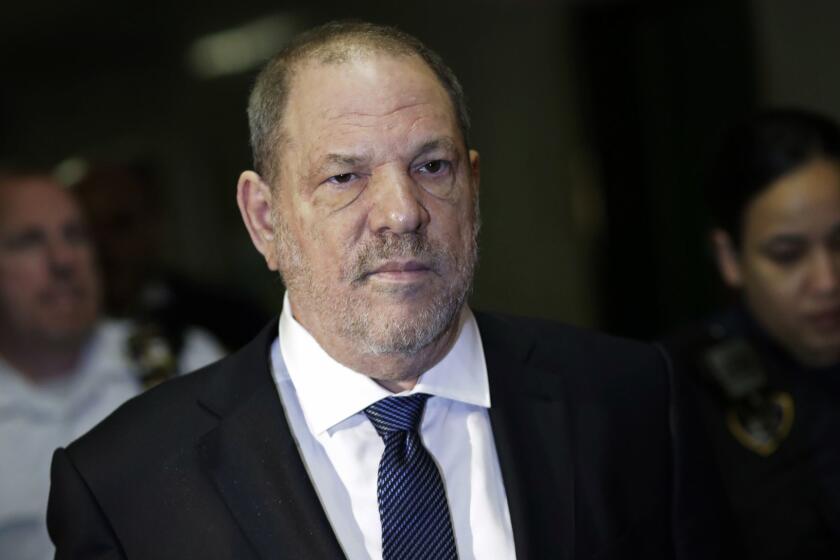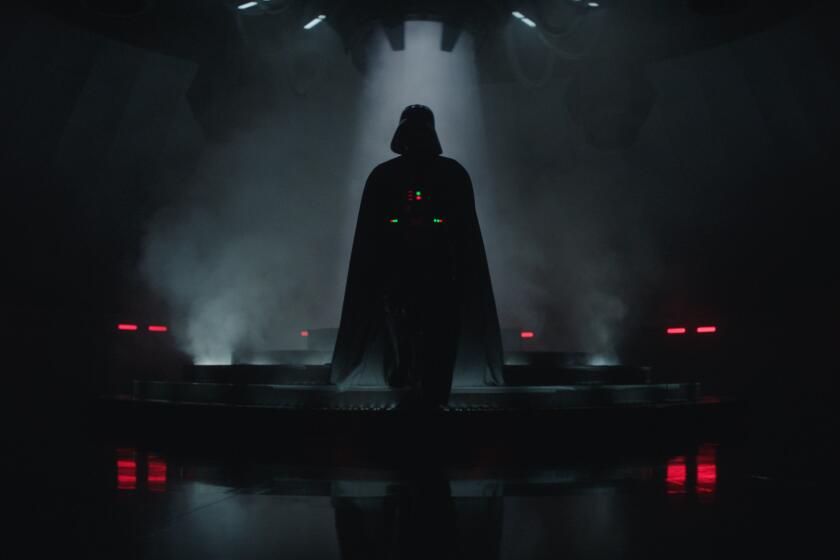Appeals court rules Ashley Judd can pursue sexual harassment claims against Harvey Weinstein

- Share via
Harvey Weinstein’s legal woes continue.
A federal judge won’t approve a proposed $18.9-million settlement between Harvey Weinstein and nine women who say he sexually assaulted or abused them.
On Wednesday, the 9th Circuit Court of Appeals reversed a lower court decision, ruling that actress Ashley Judd can go forward with a sexual harassment claim against the disgraced movie producer.
One of the first actresses to speak out publicly against Weinstein, Judd claimed that in 1998, the once powerful Hollywood figure, lured her to his room at the Peninsula Hotel in Beverly Hills. Once there, he made unwanted advances, including asking her to watch him shower and attempted to give her a massage, she said.
In April 2018, Judd sued Weinstein, claiming that he retaliated against her professionally and sabotaged her career after she rejected his overtures.
In the lawsuit filed in Los Angeles County Superior Court, Judd alleged that Weinstein made false and malicious statements about her, which resulted in a lost opportunity to work in the “Lord of the Rings” movie trilogy.
Peter Jackson, the director of the “Lord of the Rings” trilogy, later confirmed that he removed Judd from consideration for the films after meeting with Weinstein.
In September, a federal judge struck down Judd’s sexual harassment claim against Weinstein, saying California’s sexual harassment law didn’t apply to her case because she was not an employee and did not have a professional relationship with Weinstein.
However, the judge allowed her to pursue her defamation and retaliation suit, as well as to amend her sexual harassment complaint.
Subsequently, the California Legislature changed the law specifically to include directors and producers as those covered under the law.
In its ruling, the three-judge panel of the 9th Circuit found that the lower court “erred,” saying there was “an inherent power imbalance,” and that “Weinstein was uniquely situated to exercise coercion or leverage over Judd by virtue of his professional position and influence as a top producer in Hollywood.”
Judd’s lawyer Theodore J. Boutrous Jr., a partner at Gibson, Dunn & Crutcher, in a statement called the ruling “an important victory not only for Ms. Judd but for all victims of sexual harassment in professional relationships. The court correctly holds that California law forbids sexual harassment and retaliation by film producers and others in powerful positions, even outside the employment context, and we look forward to pursuing this claim against Mr. Weinstein at trial.”
Weinstein’s lawyer, Phyllis Kupferstein, said in a statement: “We are glad that both Ms. Judd and Mr. Weinstein will have their day in court, where we expect the truth will come to light. The most minimal investigation of the events will show that Mr. Weinstein neither defamed Ms. Judd, nor hindered or interfered with her career, and certainly never retaliated against her. Instead, Mr. Weinstein championed her work and approved her casting for two of his movies.”
Earlier this month, a federal judge rejected a proposed civil settlement between the disgraced mogul and nine women who said he sexually assaulted or abused them. U.S. District Judge Alvin Hellerstein in New York said he wouldn’t consent to the $18.9-million settlement in part because the agreement tried to include claims by women who asked to be excluded from the deal.
He said the proposed settlement unfairly included women who simply met Weinstein, in addition to those who were sexually assaulted by him.
In February, Weinstein was convicted of rape and felony sex crime in New York City and sentenced to 23 years in jail.
The Hollywood producer behind such Oscar-winning hits as “Shakespeare in Love,” “Chicago” and “The King’s Speech” was fired from his namesake company in October 2017 after dozens of women accused him of sexual misconduct.
In addition to a class-action suit filed by alleged victims and former Weinstein Co. employees, multiple women have filed individual suits against Weinstein alleging sexual misconduct, assault or harassment.
Weinstein has denied having nonconsensual sex with women who have accused him of misconduct.
More to Read
Inside the business of entertainment
The Wide Shot brings you news, analysis and insights on everything from streaming wars to production — and what it all means for the future.
You may occasionally receive promotional content from the Los Angeles Times.











